The Ultimate Guide On How To Share Safely Online
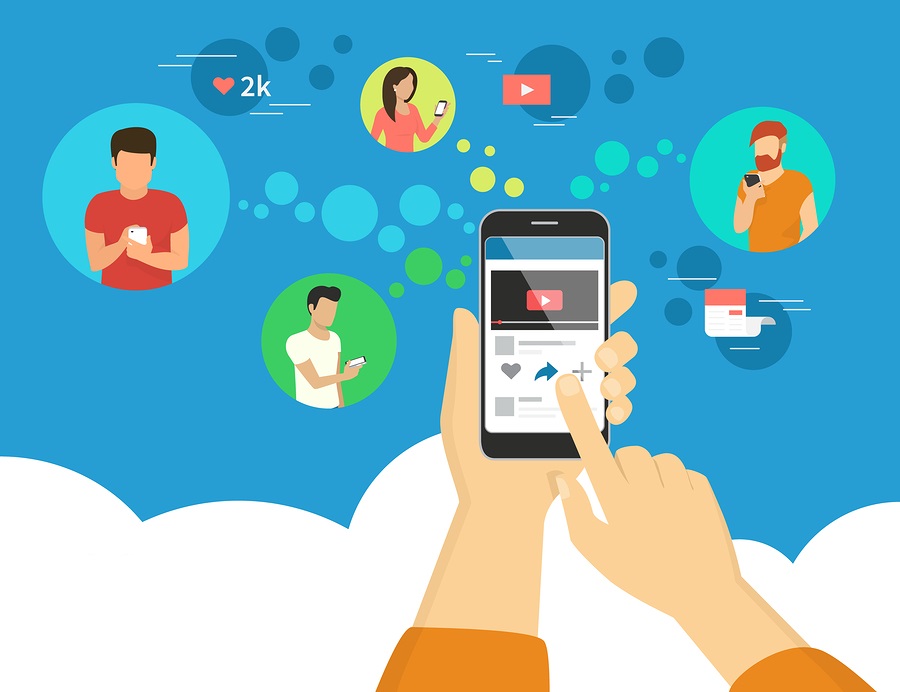
Safely Sharing Online: We live in a society where digital connectedness is essential. Many people are now spending half a day more every month online than they were a year ago, according to We Are Social. In addition, in 2020, 33 million used the internet at least once a month. As more people spend more time online each year, they are deliberately spilling their personal information into the digital ether, leaving them open to a variety of cybercrimes.
The consequences can range from malware infection to identity theft. Users will be able to traverse online threats and safely connect with others if they have a better awareness of the best practices for online sharing.
Also, Read: How to Protect Your Whole Family From The Internet This 2021
Different ways that online users are putting themselves at risk by sharing too much information.
1. Personal Information is automatically saved and shared.
Consider how many websites you visit on a regular basis. Just how many have access to confidential data, such as your email address, payment card numbers, and shipping address? Consider the following before accepting the option to save your information on file for a "faster checkout experience": According to a survey of 500 IT security professionals, one-quarter of them would face a data breach in 2020. Users of the internet cannot afford to be careless with the information they provide to online businesses, especially if they subscribe to multiple sites.
Also, Read: What Not to Do And Internet Safety Tips To Protect You Online
On a related point, giving out personal information is also not a good idea. Online quizzes, while appearing to be harmless, may not be as safe as you assume. Some quiz inquiries, such as "What was your first car?" or "Where did you grow up?" sound more like security questions. Hackers can use spyware to gain access to these answers and any other information you provide on quiz sites in order to make educated guesses at your passwords.
2. Too much sharing on Social Media
Given that the goal of these platforms is to share, it may seem irrational not to disclose information on them. The problem with social media, however, is that too many individuals leave themselves vulnerable to hackers because of the granularity of the information they disclose. According to Statista, more than two-thirds of users use social media, implying that there are millions of user accounts and newsfeeds teeming with personal data. Hackers can use specific information, such as corporate data in a new job posting or your birth date in a celebratory post, to impersonate you or get access to your accounts.
Even if you can take reasonable efforts to protect your personal information, you cannot be certain that others will do the same. Many people are unaware that purposefully sharing information, usually, login passwords, with others involves more than just a loss of privacy. If your password-sharing friend gets hacked, a cybercriminal now has access to both your and their information. This information can then be used by cybercriminals to break into your accounts, hold your data for ransom, or even steal your identity.
Safely Sharing Online
The first step in protecting your online presence is to understand what information is safe to post and how to secure the information that isn't. Here are four things to think about before you share personal information on websites, social media, or with others:
Check the website and online security
Constantly err on the side of safety while visiting unfamiliar websites or downloading apps to your devices. Be mindful of what you click on, the consequences of clicking on a malicious link, and the risks of providing personal information on an unsafe website. Looking for the padlock icon in the top left corner of your browser is one way to guarantee you're on a safe website. The site and your connection are both secure, as shown by this indicator.
Also, Read: Online Shopping Safety Guide - Be Wary of Websites
Take your internet security a step further by avoiding saving your data to a file. If at all feasible, utilize a secure payment method that does not ask you to enter your credit card information. As a result, in the event of a company data breach, your data will not become a liability.
The use of VPN
Consider using a virtual private network (VPN) to protect your connection before going online. With a VPN, you may browse the internet with the assurance that your Wi-Fi and any sensitive data you send over this connection are secure. In other words, if a hacker intercepts this information, they will be unable to decipher it.
Also, Read: Is It Legal to Use a VPN in the U.S?
Authentication system
Even if hackers manage to obtain your credentials, enabling multi-factor authentication provides an extra degree of security that makes it nearly impossible for them to bypass.
Make sure your passwords or passphrases are strong by following password best practices and making them long, difficult, and varied. Use a password manager with a generator to help you create and save strong passwords so you don't have to remember them. This method is also more convenient and secure than saving passwords in browsers. Password managers, such as McAfee True Key, also make it simple to transmit your credentials securely with others.
Privacy on your Social Media
On social media, there's a narrow line between sharing too much and sharing just enough. Adjust your privacy settings on social media to start taking control of your privacy. Unless you want to be a social media influencer, you should keep your account private and limit your followers to people you know. Strangers should not be followed, and strangers should be rejected as friends. It's possible they're a hacker.
Take use of platform security features that allow you to manage the information that is visible to others. You can, for example, disable your activity status or geolocations to prevent others from tracking your every step, or restrict the personal information these platforms are permitted to disclose. Remember that any third-party program that has access to these platforms will have its own set of privacy policies. Read the tiny print in their user agreements because these restrictions vary for every app.
Prioritize Online Safety and Connectivity
From Facebook, Instagram, Youtube to employment to daily activities, people's lives are increasingly oriented around their digital devices and online access. Users must learn to manage their data the same way they would their physical identification or credit cards. Individuals will only be able to engage in online activities with confidence if they know they are doing so safely.
Related Posts
 Safety
Safety
Always Check the Website You Visit
Learn how to check if a website is safe before entering personal information. Protect yourself from scams, phishing, and malicious websites.
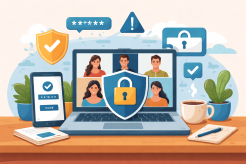 Safety
Safety
How to Secure Video Calls and Prevent Hacks
Learn how to secure video calls, prevent meeting hacks, enable MFA, protect accounts, and safeguard remote meetings with practical security best practices.
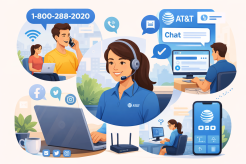 Internet Bundles
Technology
Internet Bundles
Technology
Is AT&T Customer Service Good? Support Review
Is AT&T customer service good? Explore support options, phone numbers, live chat access, and real performance insights for residential and business users.
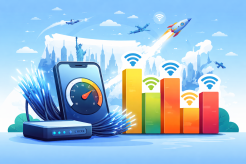 Internet Bundles
Internet Bundles
Top Fiber Internet Providers in the U.S. Ranked by Speed
Discover the top fiber internet providers in the US, their speeds, pricing, and customer satisfaction ratings. Find the best plan for fast, reliable, and uninterrupted internet.
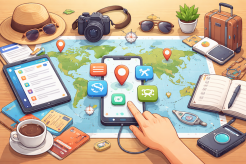 Technology
Technology
25 Best Travel Apps to Make Every Trip Easier in 2026
Discover the best travel apps for planning, navigation, budgeting, security, and communication to make every trip easier and more efficient.
